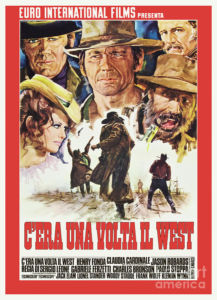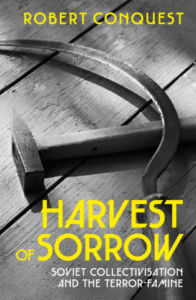All liberal, socialist, and Marxist societies, regardless of their specific economic system, have one thing in common: They are all tied to the economy. (more…)
Tag: Marxism
-

Antonio Gramsci (photo courtesy of Wikipedia)

Antonio Gramsci (photo courtesy of Wikipedia)
3,281 words
The following essay was written by Serhiy Zaikovsky, a Ukrainian historian, translator, and writer who was one of the founders of the Plomin publishing house. Born in 1994, Zaikovsky also served in the Armed Forces of Ukraine and was killed in action on March 24, 2022.
The Statesman, Niccolò Machiavelli’s seminal work, was conceived as something that was intended to codify the laws of politics and the mechanisms of the exercise of power that had not yet been expressed by anyone (since antiquity?) and turn them into clear rules that would be understandable to every prince. In the Ukrainian translation by Anatoly Perepadi, the treatise contains 73 pages. (more…)
-
April 25, 2024 Greg Johnson
Nowa Prawica przeciw Starej Prawicy
Rozdział 1: Nowa Prawica przeciw Starej PrawicyEnglish original here, Translations: French, German, Polish, Spanish
Część 3 (Przedmowa, Wprowadzenie, Rozdział 2)
Co jest “nowego” w Północnoamerykańskiej Nowej Prawicy i jak odnosi się ona do “Starej Prawicy”?
Zanim odpowiem na to pytanie, muszę wyjaśnić, co Stara Prawica i Nowa Prawica mają wspólnego oraz co odróżnia je od dzisiejszej fałszywej prawicy, a mianowicie od współczesnych centro-prawicowych partii i wszelkich form klasycznego liberalizmu. (more…)
-

Alejandro Mayorkas helps us by showing just how ridiculous the Left’s positions really are. (Photo from the Department of Homeland Security website.)

Alejandro Mayorkas helps us by showing just how ridiculous the Left’s positions really are. (Photo from the Department of Homeland Security website.)
2,125 words
Missouri Senator Josh Hawley grilled US Secretary of Homeland Security Alejandro Mayorkas about the crisis on the Mexican border on February 2, stating in part that Mayorkas’ performance was “despicable” and that his unwillingness to provide answers was “absolutely atrocious.” Mayorkas attempted to deflect blame by stating that he is the child of a holocaust survivor, thereby implying that he, and by extension most Jews, should be above criticism.
It was hard to tell if he was being devious or if this is what he actually believes. Mayorkas’ blunder was so egregious I wouldn’t be surprised if Jonathan Greenblatt gave him a call afterwards about feeding “problematic anti-Semitic tropes.” (more…)
-
Georges Eugène Sorel was born 176 years ago today, and died at the age of 74. Born in Normandy and educated in Paris, Sorel was an engineer by training who took an early retirement to devote himself to philosophy and politics. Although conservative by temperament (he defended the patriarchal family and martial virtues), Sorel became a Marxist, albeit an increasingly heterodox one, and a revolutionary syndicalist. (more…)
-
Part 2 of 2 (Part 1 here)
After the climactic gunfight between Frank and Harmonica, the latter and Cheyenne say goodbye to Jill. But just outside of the McBain property, Cheyenne falters. Harmonica stops and turns with concern. It turns out that Cheyenne was mortally wounded by Morton. Like Jesus, he has a bleeding wound in his side. This comes as some surprise. He must have been putting up a brave front with Jill. But the surprise comes off as a rather contrived plot twist; one of many. (more…)
-
Part 5 of 5 (Part 1 here, Part 4 here)
Transcript by Hyacinth Bouquet. The following is a transcript of the fifth and final part of Marian Van Court and Arthur Jensen’s conversation, which can be heard here, or using the player below.
There are a few places where the recording is inaudible, and have been marked as such. If you can figure out what is being said, or if you have other corrections, please offer them in the comments below. (more…)
-
Anne Applebaum
Red Famine: Stalin’s War on Ukraine
Great Britain: Penguin Books, 2017Robert Conquest
The Harvest of Sorrow: Soviet Collectivization and the Terror Famine
New York: Oxford University Press, Inc., 1986The [Communist] Party’s . . . rationale for everything done to the kulaks, is summarized with exceptional frankness in a novel published in Moscow in 1934: “Not one of them was guilty of anything, but they belonged to a class that was guilty of everything.” — Robert Conquest (more…)
-
5,627 words
Part 6 of 7 (Part 1 here, Part 5 here, Part 7 here)
The “Grand Liberal Narrative” of the Twentieth Century
Despite a wide variety of historical schools, a centrist liberal historiography committed to the ideals of rationalism, meritocracy, and the global spread of human rights dominated the writing of history until about the 1980s — while subsequently integrating within its fold the more progressive schools of New Left, feminist, multicultural, and postmodernist historians via a “new liberalism” determined to ensure equal rights for everyone against the continuing racism, sexism, and ignorance of old liberals. (more…)
-
June 12, 2023 Beau Albrecht
Frantz Fanon’s Black Skin, White Masks:
A Primary Text of Post-Colonial Jive
Part 12,877 words
Part 1 of 4 (Part 2 here)
Frantz Fanon was a black author who mostly wrote about being black. (Of course, right?) The celebrated skintellectual began as a citizen of Martinique. He volunteered for the De Gaullist forces during the Second World War. Then he got a university education on scholarship in Lyon and became a psychiatrist.
What would he have done had he stayed in Martinique — editing some sad Leftist rag in Fort-de-France, perhaps? If that didn’t work out, then like many other islanders he could’ve earned his daily bread with a machete, chopping down bananas or sugar cane all day under the tropical Sun. (more…)
-

You can buy Greg Johnson’s New Right vs. Old Right here

You can buy Greg Johnson’s New Right vs. Old Right here
3.306 palabras
English original here
Introducción aquí, Capítulo 2 aquí
¿Qué hay de “novedoso” en la Nueva Derecha norteamericana, y qué relación guarda con la “Vieja Derecha”?
Antes de poder responder a eso, necesito aclarar lo que la Vieja Derecha y la Nueva Derecha tienen en común y lo que las diferencia de la falsa derecha actual: es decir los partidos de centro-derecha actuales y todas las formas de liberalismo clásico. (more…)









